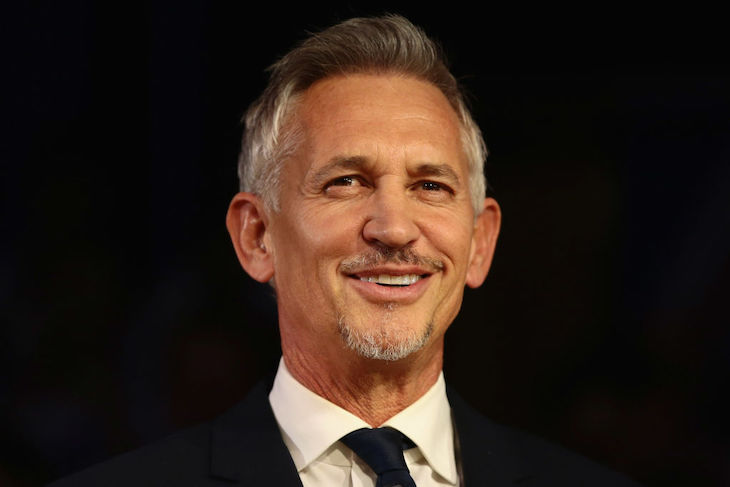The BBC-based sitcom W1A centred on a running joke about how the spinelessness and ineptitude of senior management led them to dig themselves ever-deeper into holes. At one point in the series, the Corporation’s ‘Head of Values’ is wrong-footed by an ex-footballer who wants to be a television pundit. Another episode centres on him closing down an orchestra which turns out to be widely admired by licence-payers.
Well, life imitating art and all that then. Today’s ‘resolution’ of the Gary Lineker furore, which began on the basis of the director general Tim Davie’s determination to defend the Corporation’s impartiality, could hardly have done more to cement its reputation as a redoubt of liberal Left bias and groupthink.
The errant Match of the Day presenter is not only welcomed back having issued no apology about his tweets, but having also forced a review of existing impartiality requirements, especially those applying to freelance presenters. There is only one way this review is headed and that is to a significant dilution of restrictions on the public utterances of sports presenters with big ears who are paid more than £1m a year from the licence fee.
Perhaps there will be a ‘please don’t call people Nazis’ clause Davie will seek to use as a fig leaf, but nobody will be buying that. Because comparing the language used to set out the government’s asylum plan to ‘that used by Germany in the 30s’ is the very thing that has forced the new Lineker Principle upon us: namely that household name presenters not employed in politics or news coverage can pretty much say what they like about political issues on social media and elsewhere.
The past week has rendered Tim Davie a broken figure
Theoretically, one supposes that it must also follow that such presenters will be able to advance high octane right-wing views as well. But given that we know broadcast media operatives lean heavily to the liberal left, there are unlikely to be many examples of that.
So the very phenomenon Davie has sought to address as DG – the perception of BBC bias against mainstream ‘provincial’ sensibilities – has today been formally institutionalised. Stand by for a torrent of ‘Brexit is evil/Britain is falling to fascism’ standard London dinner party takes from the Corporation’s talent.
The BBC is going to continue being a key part of the ultra-polarisation of British political culture, rather than the antidote to it that Davie envisaged.
The past week has rendered Davie a broken figure whose credibility lies in tatters. It has also illustrated that BBC chairman Richard Sharp is compromised to the point of being utterly hamstrung when it comes to guiding the Corporation through tricky terrain.
As a former Tory donor widely seen as ‘Boris Johnson’s man’ following his role in facilitating a loan for the ex-PM, Sharp has been able to say and do nothing throughout the Lineker saga. Never mind whether he should resign (and, of course, he should), the point now is that he must resign because he is demonstrably unable to do his basic job.
The cultural Left has won this skirmish hands down. No BBC boss will ever dare to stand in the way of Lineker’s juggernaut brand again. And the two ‘Tories’ at the top of the Corporation (Davie once stood as a Conservative candidate) are so much roadkill under its tyres.
What, though of the licence fee – the idea that TV viewers must, under penalty of the criminal law, pay almost £160 a year to fund an organisation that will not defend its impartiality requirements against a cultural leftist onslaught?
The case for any Conservatively-minded person defending it is now down to one based on the wilful suspension of disbelief required to be able to say that this is a unifying, trusted and impartial institution in British life that merits a quirky, illiberal and old-fashioned funding model. It isn’t. It’s gone.







Comments